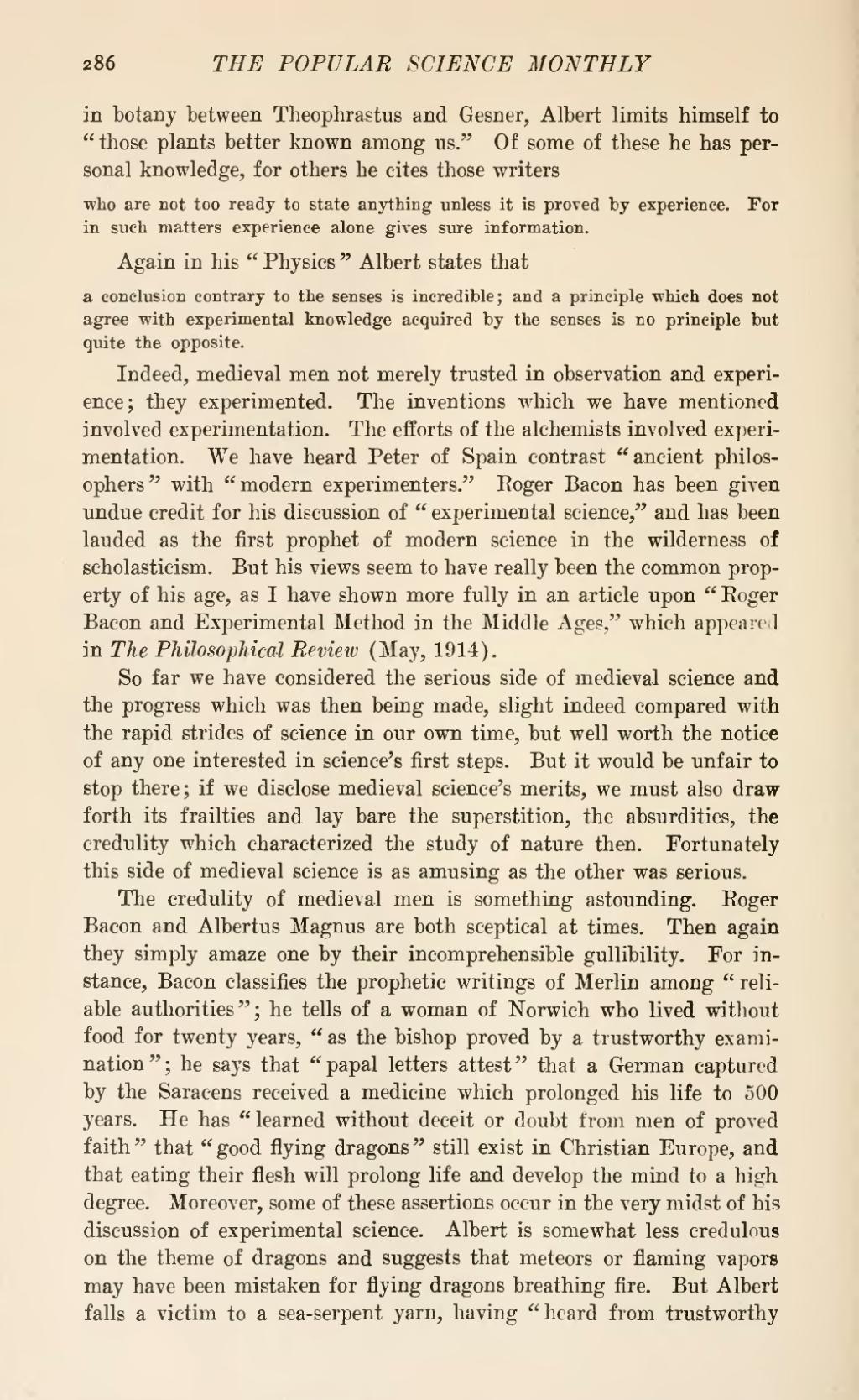in botany between Theophrastus and Gesner, Albert limits himself to "those plants better known among us." Of some of these he has personal knowledge, for others he cites those writers
who are not too ready to state anything unless it is proved by experience. For in such matters experience alone gives sure information.
Again in his "Physics" Albert states that
a conclusion contrary to the senses is incredible; and a principle which does not agree with experimental knowledge acquired by the senses is no principle but quite the opposite.
Indeed, medieval men not merely trusted in observation and experience; they experimented. The inventions which we have mentioned involved experimentation. The efforts of the alchemists involved experimentation. We have heard Peter of Spain contrast "ancient philosophers" with "modern experimenters." Roger Bacon has been given undue credit for his discussion of "experimental science," and has been lauded as the first prophet of modern science in the wilderness of scholasticism. But his views seem to have really been the common property of his age, as I have shown more fully in an article upon "Roger Bacon and Experimental Method in the Middle Ages," which appeared in The Philosophical Review (May, 1914).
So far we have considered the serious side of medieval science and the progress which was then being made, slight indeed compared with the rapid strides of science in our own time, but well worth the notice of any one interested in science's first steps. But it would be unfair to stop there; if we disclose medieval science's merits, we must also draw forth its frailties and lay bare the superstition, the absurdities, the credulity which characterized the study of nature then. Fortunately this side of medieval science is as amusing as the other was serious.
The credulity of medieval men is something astounding. Roger Bacon and Albertus Magnus are both sceptical at times. Then again they simply amaze one by their incomprehensible gullibility. For instance, Bacon classifies the prophetic writings of Merlin among "reliable authorities"; he tells of a woman of Norwich who lived without food for twenty years, "as the bishop proved by a trustworthy examination"; he says that "papal letters attest" that a German captured by the Saracens received a medicine which prolonged his life to 500 years. He has "learned without deceit or doubt from men of proved faith" that "good flying dragons" still exist in Christian Europe, and that eating their flesh will prolong life and develop the mind to a high degree. Moreover, some of these assertions occur in the very midst of his discussion of experimental science. Albert is somewhat less credulous on the theme of dragons and suggests that meteors or flaming vapors may have been mistaken for flying dragons breathing fire. But Albert falls a victim to a sea-serpent yarn, having "heard from trustworthy
